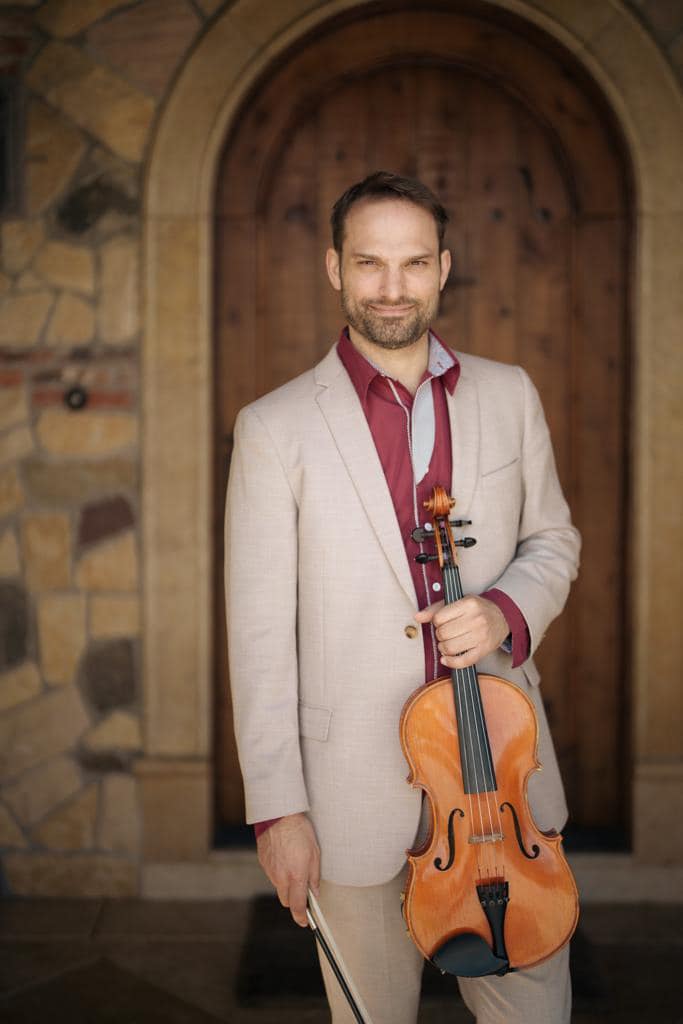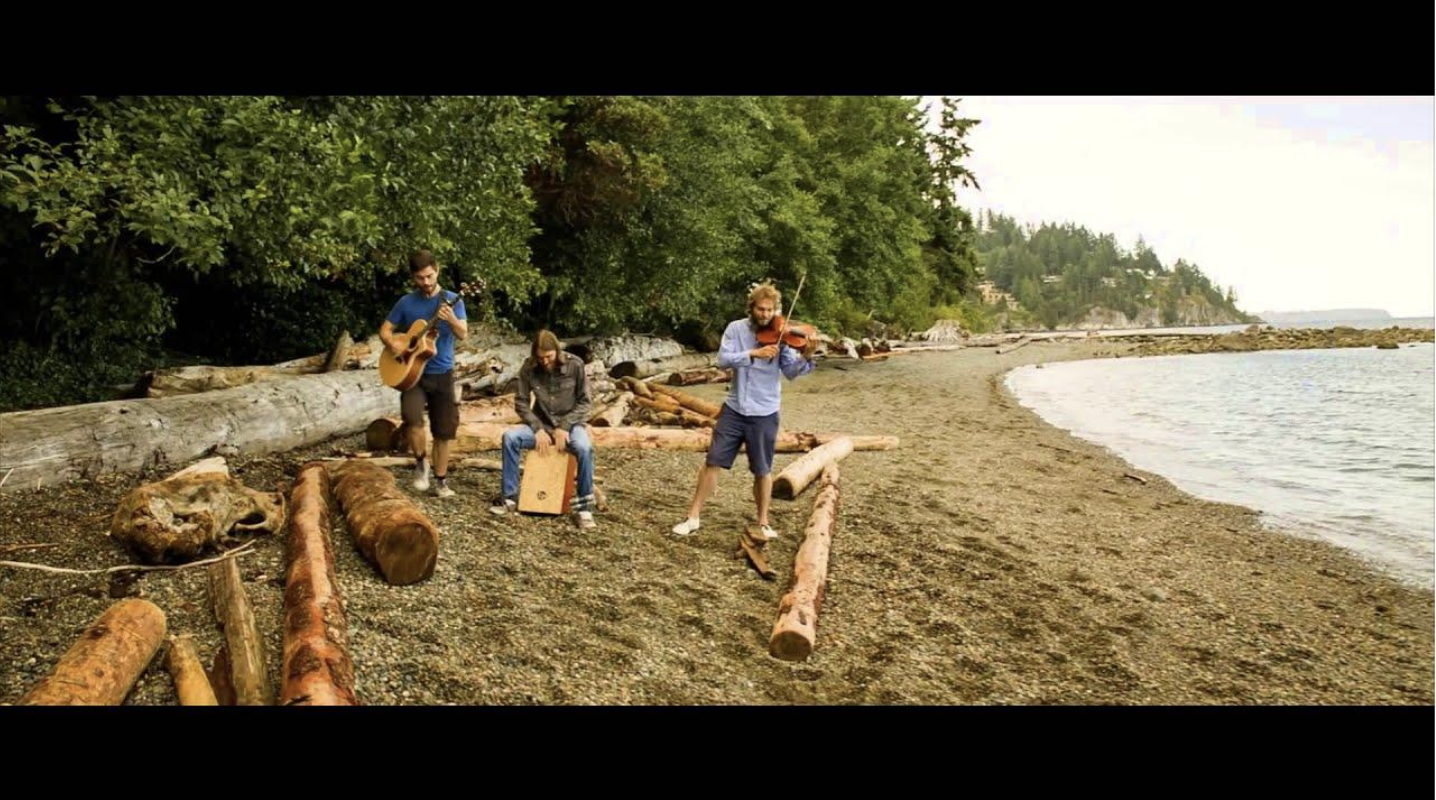When it comes to film and television, most people think of the actors, writers, and directors. Soundtracks can often make or break a movie. The music compliments the visuals and dialogue in subtle ways that help take the audience on a wonderful journey.
This week we spoke with Vancouver musician and composer Thomas Beckman.
HNMAG: Where are you from?
Thomas Beckman: I was born in Vancouver but when I was six, my family moved to South Africa in 1990. It was an interesting time with Nelson Mandela’s release and the collapse of Apartheid. I remember Mandela’s inauguration in 1994. I was ten. A year later we won the Rugby World Cup which was a big moment for the country because everybody despite their racial prejudices came together to celebrate. I just remember, even as a young kid, the euphoria that swept through the country. When I look back, I feel privileged to have done my schooling in SA during that period because of its historical significance.
HNMAG: Why did your parents move there?
Thomas Beckman: They grew up in South Africa and got married in 1969, directly after which they hopped on a cruise for their honeymoon and ailed off to the UK and from there traveled around the world. After twenty years, when things looked like they were finally improving and Apartheid was crumbling they, like many other Saffers abroad, wanted to return.
HNMAG: Did they leave South Africa due to Apartheid?
Thomas Beckman: I think it was a huge part of it. They despised the system. It wasn’t a free or expressive place to live.
HNMAG: What made you decide to move back to your birth city?
Thomas Beckman: After completing my Bachelors, I needed a change. I felt stifled in Capetown so I enrolled in a two-year masters program at the University of British Columbia.
HNMAG: Did you find work after that?
Thomas Beckman: I started busking. It was a lot of fun. I would have not been able to do that in Cape Town due to the crime.
HNMAG: After getting your Master’s degree, did you imagine your path would lead to busking?
Thomas Beckman: I thought more towards orchestra. I don’t even remember what led me to my first busking session. I do remember it was on Granville Island. I remembering hearing the clattering of coins hitting my case and then thinking ‘I could do this for a living.’ A job with no boss, playing music – pretty grand!
HNMAG: What instrument did you focus on?
Thomas Beckman: I started with violin and then in the third year of university, I added viola. After that I switched completely to viola. I had this Soviet-era Russian professor at the University of Cape Town, who still teaches there today. She’s highly accomplished, and very strict. Her husband was a great viola player and when he played me Yuri Bashmet’s recording of Schnittke’s viola concerto, I knew then this was my instrument. His sound and the instrument spoke volumes to me. Since then, it’s always been the viola for me. That’s been my central drive.
HNMAG: Is that what you play when busking?
Thomas Beckman: Yeah.
HNMAG: Maybe the viola generates a different crowd when most others play guitar.
Thomas Beckman: You see a few violin buskers. You see a few cellists, but viola is not seen as much. It’s such a dark and beautiful-sounding instrument. It deserves more representation.
HNMAG: Which film composers do you enjoy?
Thomas Beckman: I love John Williams the classic golden-era Hollywood composers like Bernard Hermann, Miklós Rózsa, Erich Wolfgang Korngold, Jerry Goldsmith, etc…
HNMAG: Is there a specific movie score that inspired you?
Thomas Beckman: The music from Schindler’s List is incredibly powerful.
HNMAG: Does John Williams play the viola or is that someone else in the orchestra?
Thomas Beckman: The music is not written specifically for the viola, it’s written for the symphony orchestra.
HNMAG: Did you meet the Sons of Granville through busking?
Thomas Beckman: Yeah, in 2010 my collaboration with Matthew Lenox lead me into a more busking life. We quickly formed Sons of Granville and started busking three to five times a week. In 2013, precisionist Jarett Plett joined us and we gained some serious momentum. We started drawing crowds and made some proper cash through our fist CD. It was a golden period for us. Meeting all these other musicians in Vancouver, like the late Randy Ponzio, David Morin, Mark Stokes, Tonye Aganaba and others. We felt a part of something special, like a brotherhood.
HNMAG: How long did Sons of Granville go for?
Thomas Beckman: Matthew Lennox left to travel in 2014. We finished second in the Georgia Straight Best of Poll for top unsigned band, three years in a row. We won a Telus Storyhive competition along with nine other applicants which we used to produce our first music video, April Song. We also featured in the Spring show which was a multicultural, diverse performance in front of three thousand people at the Queen Elizabeth Theatre. We got a very strong reception. When Matt left, I came down with a repetitive strain injury that took me out of playing for almost two years.
HNMAG: What was that from?
Thomas Beckman: I played a lot and I was busking outside of Cambie/Broadway station on the Canada Line, it was late at night, around 9 pm and I started getting a buzz in my pinky. After the next few months, it consumed both my arms. Everything slowed down and Justin Brown, who produced our album, took Matt’s place. It was a struggle for the next couple of years to reestablish ourselves and deal with my injury, but we gradually fell into a grove. Now we’re an in-demand corporate band doing several well paid gigs a month.
HNMAG: Tell us about the first time you worked on creating music for film and television and how that’s different than creating music for your own projects.
Thomas Beckman: The first soundtrack was for a movie called The Colors of Edziza. It was a documentary that featured in the Vancouver International Mountain Film Festival. (VIMFF). I multi-tracked my viola and came up with eight tracks for the documentary, including a main title.
HNMAG: How did that come about?
Thomas Beckman: Michael and Chantal Schauch discovered me through busking. They approached me and told me about a big hike over a mountain in Western Canada and they were making it into a documentary. That was in 2015.
HNMAG: Did you watch the footage to score the documentary?
Thomas Beckman: They just said to come up with ambient tracks and a theme after they told me what they were doing. It was quite freeing. The next project was a short film called Phosphenes by a Mexican director Frida Hirari Sitton. It finished first in the Ottawa Film Festival in 2016. They flew me down to Mexico City for the Premiere.
HNMAG: How did you score that short?
Thomas Beckman: This time I scored everything to picture.
HNMAG: How did that compare to working on the documentary?
Thomas Beckman: It was free as well. There was no dialogue, shot in a bedroom about two lovers in a quarrel. It was very dramatic and sensual. The director wanted the viola to be a prominent voice.
HNMAG: Have you composed anything for a narrative film with dialogue?
Thomas Beckman: I met the filmmaker Jason Mills, through Justin Brown when making a music video. I was looking to do more film composing and I asked him to score a scene in a horror movie. Since then we’ve done a dozen films together. He works with Vision Films and his YouTube channel is close to one hundred thousand subscribers. We recently did some films for Christmas, one was called The Key to Christmas and the other was Elvis the Pig. Those are really fun because I can take on a John Williams approach. I also started composing for the Canadian Aboriginal Aids Network, the Circle of Eagles organization as well as the Artists for Conservation. Various groups of indigenous and local filmmakers making documentaries on issues concerning First communities and wildlife conservation. I took on an atmospheric approach for emotional stories. The last one was all about the residential school system with heartbreaking testimonies.
HNMAG: Do you collaborate musically for film score?
Thomas Beckman: I did have the privilege to work with a drumming circle for the last project. There were seven or eight drummers and I was able to record them. I then took samples and weaved them with synths and my own recordings of violin and viola. It gave it an indigenous sound as it focused on First Nation singing and drumming.
HNMAG: What are some the biggest challenges you faced?
Thomas Beckman: One of the biggest challenges for a musician today is to grow an online audience. For the past three to five years, I’d get together with other musicians and we’d do a really nice music video. It was hard to do this on a consistent basis. So I’m in the process of producing a series, #Violalicks, where we’re making fifty-two videos, a one-release-per-week for an entire year. This way I’ll provide my channel with consistent high-quality content. It features me solo and in collaboration with other artists such as Tik Tok sensation Esddie Lam, jazz guitarist Bojan Buganarovic, Celtic violinist Jocelyn Pettit, cellist and PhD student Nicholas Denton Protzac, my pianist from Arbutus Duo, Kitty Lam and other great Canadian musicians.
https://youtube.com/@ThomasBeckman?si=rmOnPuxbMvH45ekT
HNMAG: With the US labor issues, there is not as much work in Film and TV here in Vancouver. Has that affected you?
Thomas Beckman: That hasn’t affected me because I’m more fringe and independent. I don’t work for Hollywood Studios.
There are many talented and creative musicians that don’t find their audience. Besides ability, it takes hard work and perseverance. Thomas Beckman certainly has that but he is also willing to take chances and network to get more opportunities to create. With his upcoming #violalicks series he hopes to build a strong online audience and global appreciation for his instrument of choice, and to share his love of film music.
We need more people like Thomas Beckman who are passionate about their craft and want nothing more for the world to discover the beauty that is out there.


